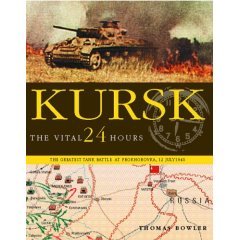In the United States, the Soviet takeover of Eastern Europe
represented an ominous development that threatened
Roosevelt’s vision of a durable peace. Public suspicion
of Soviet intentions grew rapidly, especially among
the millions of Americans who still had relatives living in
Eastern Europe. Winston Churchill was quick to put such
fears into words. In a highly publicized speech given to an
American audience at Westminster College in Fulton,
Missouri, in March 1946, the former British prime minister
declared that an “Iron Curtain” had “descended across
the continent,” dividing Germany and Europe itself into
two hostile camps. Stalin responded by branding Churchill’s
speech a “call to war with the Soviet Union.” But
he need not have worried. Although public opinion in
the United States placed increasing pressure on Washington
to devise an effective strategy to counter Soviet
advances abroad, the American people were in no mood
for another war.
A civil war in Greece created another potential arena
for confrontation between the superpowers and an opportunity
for the Truman administration to take a stand.
Communist guerrilla forces supported by Tito’s Yugoslavia
had taken up arms against the pro-Western government
in Athens. Great Britain had initially assumed primary
responsibility for promoting postwar reconstruction
in the eastern Mediterranean, but in 1947, continued
postwar economic problems caused the British to withdraw
from the active role they had been playing in both
Greece and Turkey. U.S. President Harry S Truman
(1884 –1972), alarmed by British weakness and the possibility
of Soviet expansion into the eastern Mediterranean,
responded with the Truman Doctrine (see the box
above), which said in essence that the United States
would provide money to countries that claimed they were
threatened by Communist expansion. If the Soviets were
not stopped in Greece, the Truman argument ran, then
the United States would have to face the spread of communism
throughout the free world. As Dean Acheson,
the American secretary of state, explained, “Like apples
in a barrel infected by disease, the corruption of Greece
would infect Iran and all the East . . . likewise Africa . . .
Italy . . . France. . . . Not since Rome and Carthage has
there been such a polarization of power on this earth.”2
The U.S. suspicion that Moscow was actively supporting
the insurgent movement in Greece was inaccurate.
Stalin was apparently unhappy with Tito’s promoting
of the conflict, not only because it suggested that the latter
was attempting to create his own sphere of influence
in the Balkans but also because it risked provoking a direct
confrontation between the Soviet Union and the
United States. The proclamation of the Truman Doctrine
was soon followed in June 1947 by the European Recovery
Program, better known as the Marshall Plan. Intended
to rebuild prosperity and stability, this program included
$13 billion for the economic recovery of wartorn
Europe. Underlying the program was the belief that
Communist aggression fed off economic turmoil. General
George C. Marshall noted in a speech at Harvard, “Our
policy is not directed against any country or doctrine but
against hunger, poverty, desperation and chaos.” 3
From the Soviet perspective, the Marshall Plan was
nothing less than capitalist imperialism, a thinly veiled
attempt to buy the support of the smaller European countries,
which in return would be expected to submit to
economic exploitation by the United States. The White
House indicated that the Marshall Plan was open to the
Soviet Union and its Eastern European satellite states,
but they refused to participate. The Soviets, however,
were in no position to compete financially with the
United States and could do little to counter the Marshall
Plan except to tighten their control in Eastern Europe.
|
|
||||||||
|
Www.WorldHistory.Biz
Sundries
 Contact Contact
|
 
10-08-2015, 17:13
The Truman Doctrine and the Beginnings of Containment
  |
|||||||
 |
 |
 |
 |
|||||
|
||||||||

 World History
World History





